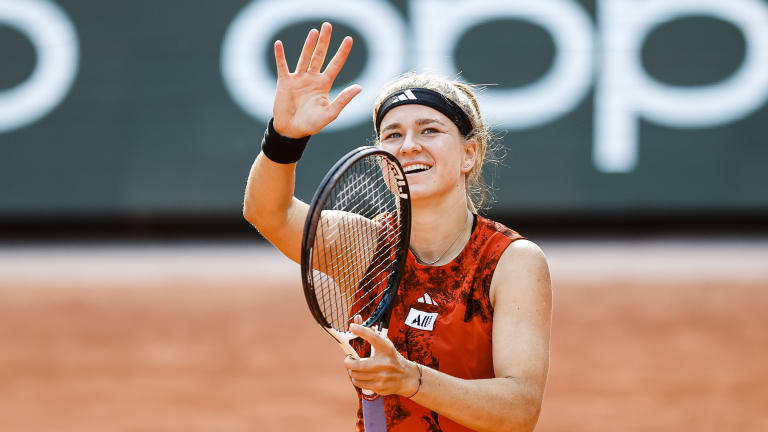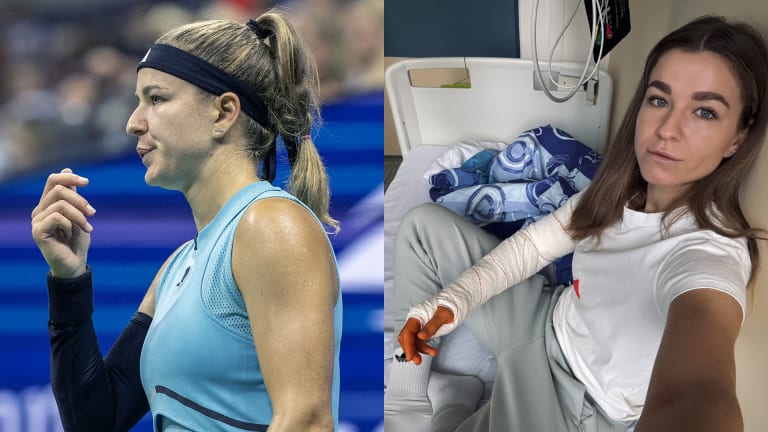Karolina Muchova is the best player you won't see at the WTA Finals
By Oct 26, 20242024 WTA Takeaways
Kasatkina, Krejcikova, Muchova, Jabeur: Stylish shotmakers that make tennis more enjoyable
By Nov 14, 2024Ningbo Open
Mirra Andreeva, Daria Kasatkina advance to Ningbo final after both semifinal opponents retire
By Oct 19, 2024Ranking Reaction
Mirra Andreeva breaks into Top 20 after reaching seventh quarterfinal of year in Beijing
By Oct 07, 2024WTA Wuhan, China
2024 WTA Wuhan preview: Five top takeaways from another strong WTA Asian swing draw
By Oct 06, 2024Beijing, China
Coco Gauff masters Karolina Muchova again to win Beijing title
By Oct 06, 2024Beijing, China
Beijing WTA final preview: Coco Gauff vs. Karolina Muchova
By Oct 05, 2024Beijing, China
Karolina Muchova serves her way past Zheng Qinwen for Beijing final clash with Coco Gauff
By Oct 05, 2024Stat of the Day
Karolina Muchova is now 7-2 against Top 3 players after her latest win over Sabalenka
By Oct 04, 2024Beijing, China
Karolina Muchova snaps Aryna Sabalenka's 15-match win streak to reach Beijing semifinals
By Oct 04, 2024Karolina Muchova is the best player you won't see at the WTA Finals
Since the Olympics, the Czech tennis savant has not lost a completed match to a player outside the Top 10.
Published Oct 26, 2024
Advertising

Muchova was the latest in a line of Czech women to reach her maiden major final at Roland Garros.
© Getty Images
Advertising
Advertising

Muchova entered the Top 10 by last year's US Open—where she reached the semifinals—but a soreness in her right wrist grew worse, and it became evident that the problem required surgery.